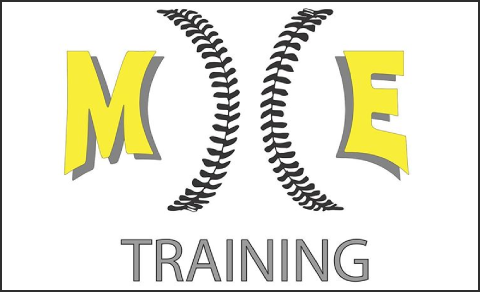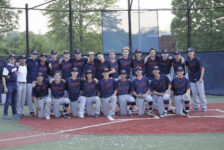by Jasper Abrahams
No other sport has as many unwritten rules and it seems like there will always be players and fans that will continue to be 100% for or against these rules for as long as the game is played.
San Diego Padres’ star Fernando Tatis Jr. was at the plate with the bases loaded in the eighth inning with the Padres up 10-3. Tatis Jr., is one of the most talented superstars in the game, especially known for his skills at shortstop and at the plate. He carries himself with extreme confidence and typically nothing phases the energetic young bull. Tatis Jr. was well ahead in the 3-0 count when he swung at the next pitch. He slammed a fastball, hurled by Juan Nicasio of the Texas Rangers, deep into the stands for a grand slam home run. This is when trouble started. According to the unwritten rules of baseball, a player should not swing with a 3-0 count if his team is ahead by more than six runs after the seventh inning. As a result of the home run, the Rangers brought on a new pitcher, Ian Gibaut whose first order of duty was to retaliate with a triple-digit fastball behind the head of the Padres’ next batter, Manny Machado. As a result of this, sparks started to fly.

In order to get to the bottom of the issue around this unwritten rule and whether it was appropriate for Tatis to swing on a 3-0 count and Gibaut to retaliate, I decided to poll some local baseball experts. Michael Andrew, relief pitcher on the Port Washington Varsity Baseball team team stated, “[Tatis Jr.] shouldn’t have swung on 3-0 because the unwritten rule is a gentleman’s agreement and cuts both ways.” He added, “in other words, both teams would have to adhere to it.” While Andrew isn’t wrong, when asked, others sided with Tatis Jr. and said this was a clean act within the game. Christian Antonopolous, relief pitcher on the Manhasset Varsity Baseball team noted, “It’s totally fair to do something like that because you never know what the potential outcome of the game could have been. Although down late in the game, the Texas Rangers certainly could’ve gained momentum and fought back against the Padres’ lead. Therefore, the insurance runs were absolutely fine.” Antonopolous further stated, “You have to play hard from the first pitch all the way to the last, and you can’t blame someone like Tatis Jr. for playing the game the way he normally plays it.”

While I couldn’t interview the late great Yogi Berra, his quote still stands with meaning in today’s game, “It ain’t over ‘til it’s over”. Here, I believe Yogi was referring to the fact that all players, regardless of the level of competition, should play with maximum effort from the first pitch to the final out.
On a more modern note, former and current Major League Baseball players chimed in with their voices on Twitter. Boston Red Sox pitcher Collin McHugh added a different perspective on the situation, “Swinging in a 3-0 count should not be against any rules, no matter the score. Before a game I would always look to see what % [percent] a guy swings 3-0. If it’s over 20%, it means I can’t just groove one. The guys who will give you a pitch at the plate are the toughest AB’s [at bats]”. Jack Flaherty from the St. Louis Cardinals said, “Having a 3-0 count in your pocket as a hitter is an extreme advantage. Hitters should not take the next pitch for granted and therefore should swing if they see a good pitch”. Flaherty added, “I don’t like it…don’t fall behind 3-0… pretty simple”. I think it is safe to say that the rule is controversial and there are friends and foes of it on both sides.

Aside from the “3-0 count” dilemma, three other unwritten rules have also sparked debates. For example, “bat flipping” is when a batter (unnecessarily) and dramatically tosses his bat after a big hit. Many consider this bad form, while others say it adds excitement to the sport. Another unwritten rule is “admiring a home run”. This is when a batter hits a home run and doesn’t immediately run out of the batter’s box, but instead stands and “admires” his work. I further polled some local baseball talent on these issues. First baseman on Jericho’s Varsity Baseball team, Andrew Lennenberg noted, “Bat-flipping is more than acceptable.” Lennenberg added, “If pitchers always show off with a strut after a strikeout, why can’t hitters appreciate a home run? If pitchers don’t want hitters to celebrate, simply don’t miss your pitch.”
Another unwritten rule that caused a lot of controversy recently is “sign stealing”. Should this be illegal, and if not, what is the proper way to steal opposing teams’ signs? Many players and fans believe that stealing signs from second base is totally legal. Port Washington’s Andrew added, “it’s part of the game”.

From my interviews with local players, the consensus is that it’s okay to steal signs as long as you don’t use any electronic technology. Manhasset’s Antonopolous agrees: “[Stealing signs from second base as a runner] is a totally fair way of stealing signs. You aren’t using cameras or other sources of technology to relay it.” When teams incorporate the use of technology, specifically cameras to steal signs, this adds an unfair edge to the game. An example of this is the Houston Astros in the 2017 and 2018 seasons where they used cameras to steal signs. Longtime Major League Baseball fan, Zack Spring asserted, “The team [Houston Astros] abused a privilege that the rest of the MLB did not.” On the other hand, supporting the defense’s view, Antonopolous added, “If the other team doesn’t want the runner on second to pick up the signs, that means that they should change the sequence in which they give those signs instead of making it clear and obvious of what pitch is coming…”
These unwritten rules get in the way of the fun and excitement with how the sport of baseball should be played. Major League Baseball should come clean and abolish all “unwritten rules”. If they want these rules to be written, they can do so but having unwritten rules just added controversy and uncertainty to the game. Players should have the opportunity to let loose and be free around the diamond once the “unwritten rules” are abolished. This will result in a fairer and more competitive game.
I say, let the kids play.













